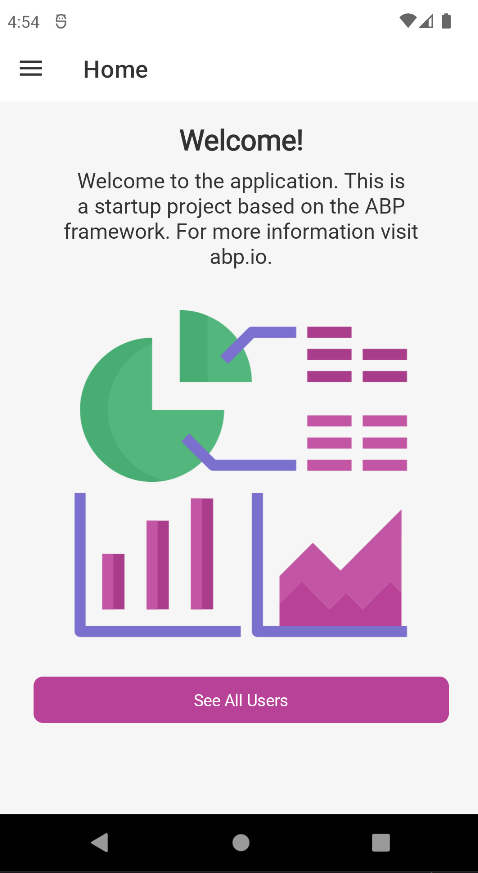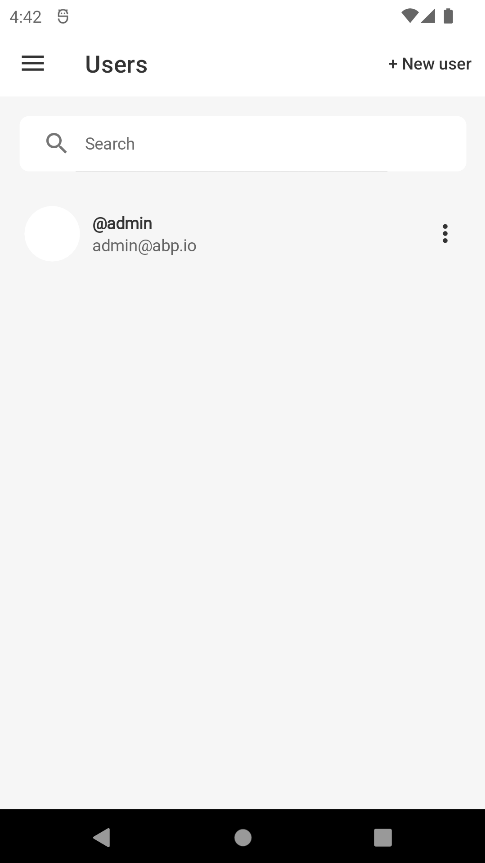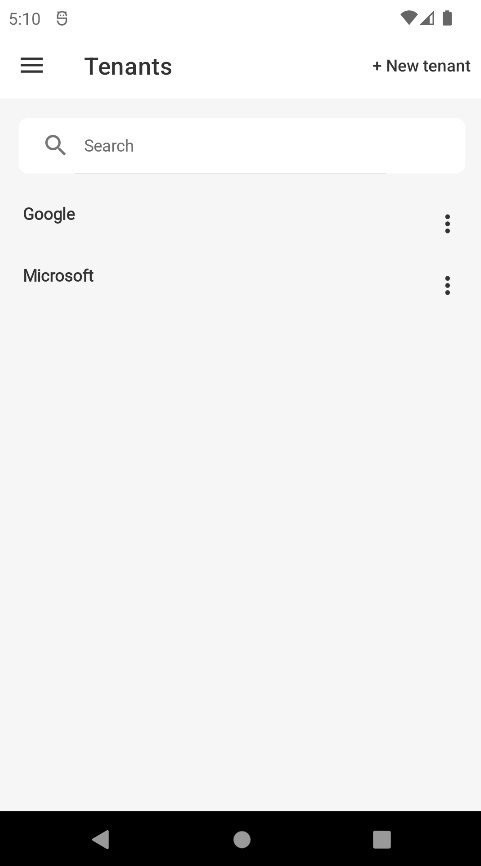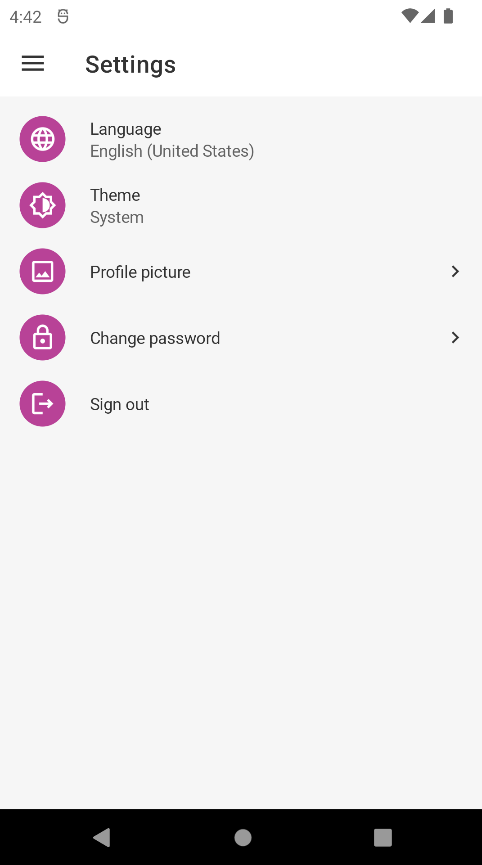Getting Started with the MAUI
ABP Commercial platform provides a basic MAUI template to develop mobile applications integrated to your ABP based backends.
Run the Server Application
Run the backend application described in the getting started document.
Run the Mobile Application
Open the appsettings.json in the MAUI project:
- Make sure that
AuthorityandBaseUrlmatch the running address of the.HttpApi.Host,.Webor.Blazor(BlazorServer UI) projects.
After ensuring the backend application is running and the appsettings.json is properly configured in the mobile application, you can proceed to run the mobile application. You can run the application either by using the dotnet build command (e.g. dotnet build -t:Run -f net9.0-android for Android or dotnet build -t:Run -f net9.0-ios for iOS) or by running it through Visual Studio or any other IDE that supports MAUI.
For more information about running the mobile application, please refer to the Microsoft's documentation.
You can examine the Users Page or any other pre-defined page to see how to use CSharp Client Proxy to request backend API and consume the backend API in the same way in your application. Also, if you encounter any errors on specific platforms, you can refer to the following sections for each platform to find common issues and their solutions.
Android
If you get the following error when connecting to the emulator or a physical phone, you need to set up port mapping.
Cannot connect to the backend on localhost.
Open a command line terminal and run the adb reverse command to expose a port on your Android device to a port on your computer. For example:
adb reverse tcp:44305 tcp:44305
Replace
44305with the port number your backend application is running on.Run this command after the Android emulator has started.
Important
If your project uses a tiered or microservice architecture, ensure that both the auth server and all remote service ports are properly proxied using the adb reverse command. You can find all the required remote service ports and AuthServer configurations in your YourProjectName.Maui/appsettings.json file.
Note
If you don't have a separate installation of Android Debug Bridge (adb), you can open it from Visual Studio by following toolbar menu Tools > Android > Android Adb Command Prompt. Android emulator has to be running for this operation.
iOS
The iOS simulator uses the host machine network. Therefore, applications running in the simulator can connect to web services running on your local machine via the machines IP address or via the localhost hostname. For example, given a local secure web service that exposes a GET operation via the /api/todoitems/ relative URI, an application running on the iOS simulator can consume the operation by sending a GET request to https://localhost:
If the simulator is used from Windows with a remote connection, follow the Microsoft's documentation to setup a proper configuration.
Got could not find any available provisioning profiles for on ios error!
You need some extra steps, please check the Microsoft document
Remote iOS Simulator for Windows
If you run the MAUI on a Mac agent, the remote iOS Simulator can't access the backend application running on Windows, you need to run the backend application on Mac or make the backend application internally.
User Interface
The MAUI template consists of four pages:
- Homepage: This is the welcome page of the application.
- Users: Management page for your application users. You can search, add, update, or delete users of your application.
- Tenants: Management page for your tenants.
- Settings: Management page for your application settings. On this page, you can change the current language, the profile picture, the current password, or/and the current theme.
Homepage

Users Page

Tenants Page

Settings Page

Advanced
Validation
In the context of the MVVM pattern (Model-View-ViewModel), a view model is responsible to perform data validation and signal any validation errors to the view so that the user can correct them. In MAUI, to perform validation you should define the view model properties as of type ValidatableObject<T> and specify related validations rules.
To specify validation rules and add validation rules to a property, you can refer to Microsoft's Validation documentation.
Publishing
There is no custom step for publishing your app. You can follow the official documentation for each platform:
ABP template uses Secure Storage to store access & refresh tokens. So, make sure you have completed the following section for each platform to use it in production:






























































